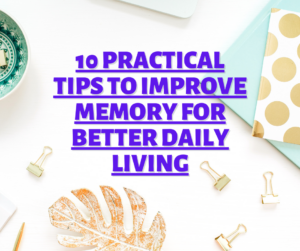That creeping feeling of unease, the racing heart, the knot in your stomach—we’ve all been there. Anxiety is a universal human experience, a natural response to stress and uncertainty. But when does normal worry become an anxiety disorder? This post explores anxiety, from everyday jitters to more serious conditions, offering insights, coping strategies, and resources.
Table of Contents:
- Understanding Anxiety: From Normal to Disorder
- Recognizing the Signs of Anxiety
- Exploring the Causes of Anxiety
- Managing and Treating Anxiety
- Anxiety: Confronting Specific Phobias
- Seeking Support and Finding Resources
- Conclusion
Understanding Anxiety: From Normal to Disorder
Anxiety isn’t always bad. A healthy dose can be beneficial, sharpening focus and motivating action. It’s the fight-or-flight response, preparing us for challenges. However, for some, anxiety becomes constant, interfering with work, relationships, and overall well-being.
Defining Anxiety Disorders
Anxiety disorders are mental health conditions characterized by persistent, excessive worry and fear, often disproportionate to the situation. The DSM-5-TR recognizes several distinct anxiety disorders, each with specific symptoms.
These include generalized anxiety disorder (GAD), marked by chronic worry; panic disorder, characterized by sudden, overwhelming panic attacks; and specific phobias, involving intense fear of particular objects or situations. For young children, a common type is separation anxiety disorder.
Other conditions include social anxiety disorder (fear of social situations) and agoraphobia (fear of places where escape might be difficult). While obsessive-compulsive disorder (OCD) and post-traumatic stress disorder (PTSD) share similarities, they are now classified separately. Anxiety is considered a disorder when it significantly impacts daily life, lasting for six months or longer.
Recognizing the Signs of Anxiety
Anxiety encompasses a range of experiences, with common physical and psychological symptoms. Physically, you might experience a racing heart, shortness of breath, sweating, trembling, muscle tension, or digestive issues.
Psychologically, anxiety manifests as excessive worry, irritability, difficulty concentrating, restlessness, sleep disorders, and a sense of impending doom. Some people experience panic attacks, with symptoms like a pounding heartbeat, rapid breathing, and feelings of terror and loss of control.
When to Seek Help for Anxiety
If anxiety interferes with your work, relationships, or daily life, seek help. Talk to your doctor, join a support group, or connect with the Depression Association. Early intervention is crucial, and many effective treatments are available. Learning about your condition and supporting loved ones with anxiety can be beneficial.
Exploring the Causes of Anxiety
The causes of anxiety are complex, often involving a combination of factors. Some individuals have a genetic predisposition to anxiety, while others experience a heightened amygdala response (the part of the brain that processes emotions). Acute stress can also contribute to feelings of anxiety.
Factors That Can Contribute to Anxiety
- Genetics: Anxiety disorders often run in families.
- Brain chemistry: Neurotransmitters, the chemical messengers in the brain, play a crucial role in anxiety. A 2020 review and the Anxiety & Depression Association of America (ADAA) provide further information.
- Personality traits: Certain personality types are more prone to anxiety.
- Traumatic experiences: Childhood trauma or traumatic events in adulthood can increase the risk of anxiety disorders.
- Stressful life events: Job loss, relationship problems, and financial worries can contribute to anxiety and sometimes trigger panic attacks.
- Medical conditions: Conditions like thyroid problems can mimic anxiety symptoms and may be linked to underlying medical issues.
- Substance abuse: Misusing or withdrawing from drugs or alcohol can worsen anxiety.
Managing and Treating Anxiety
Effective treatment for anxiety often involves therapy, medication, or both. Psychotherapy, including cognitive behavioral therapy (CBT) and exposure therapy, helps individuals manage their anxiety. CBT aids in identifying and changing negative thought patterns, while exposure therapy involves gradually confronting feared situations or objects.
Acceptance and commitment therapy (ACT) is another effective approach for some. Cleveland Clinic and Mayo Clinic highlight the benefits of therapy and medication, combined with self-help strategies.
Effective Therapies and Medications
Several therapies can alleviate anxiety. Cognitive Behavioral Therapy (CBT) helps identify and change negative thinking. Medications such as antidepressants and beta-blockers (for physical symptoms) can also be prescribed.
Benzodiazepines are sometimes used for short-term relief, but they carry a risk of dependence. Always consult with a healthcare professional for personalized treatment recommendations.
Lifestyle Changes to Reduce Anxiety
Integrating self-care into your routine can significantly improve well-being. The following table highlights various lifestyle changes:
| Lifestyle Change | Benefit |
|---|---|
| Regular Exercise | Reduces stress hormones, improves mood, and promotes better sleep. |
| Balanced Diet | Provides essential nutrients for the body and brain, enhancing stability and reducing irritability. |
| Sufficient Sleep | Allows the body and mind to rest and repair, improving emotional regulation and reducing anxiety. |
| Mindfulness Practices (meditation, yoga) | Calms the nervous system, promotes relaxation, and increases self-awareness. |
| Stress Management Techniques | Provides tools for coping with stressors more effectively. |
| Limited Caffeine and Alcohol | Minimizes consumption of stimulants that can worsen anxiety symptoms. |
| Social Support | Fosters a sense of belonging and connection, reducing feelings of isolation and providing emotional support. |
While genetics can influence anxiety susceptibility, building resilience is crucial. Resources from organizations like Mayo Clinic Research explore this concept further. These lifestyle modifications, along with medical and psychological treatments, create a foundation for managing anxiety.
Anxiety: Confronting Specific Phobias
Specific phobias, involving intense fears of specific objects, animals, situations, or activities, are common. These phobias can disrupt quality of life and lead to avoidance behaviors.
Effective treatments for specific phobias include graded exposure therapy, CBT, and even virtual reality therapy. These approaches help individuals gradually confront their fears and manage their anxiety.
Navigating Anxiety with Relaxation and Self-Care
Stress and negative environmental factors can worsen anxiety. Regular self-care is essential for overall well-being and can help reduce anxiety related to various challenges, such as school, work, or personal issues.
Relaxation techniques are powerful tools for counteracting anxiety’s physical and mental effects. Meditation, deep breathing exercises, and other mindfulness practices help calm the nervous system and reduce anxiety.
These practices, along with talk therapy and/or medication, can ease everyday anxieties and even minimize separation anxiety in adults. Consider using a mobile app for guidance on reducing anxiety. Check out this external article, Overcoming Anxiety: A Guide to Reclaiming Your Peace.
Seeking Support and Finding Resources
Certain factors can worsen anxiety, including stress, sleep deprivation, drug use, and excessive alcohol consumption. Consult your healthcare provider before using any substances or alternative medicines.
Building resilience and practicing consistent self-care are vital for long-term anxiety management. This supports personal growth and fosters healthy relationships. Seek additional help if needed. Bipolar disorder and eating disorders sometimes accompany anxiety.
External Support
Don’t face anxiety alone. The ADAA offers educational resources, support groups, and helpful articles. The National Institute of Mental Health (NIMH) provides reliable information and free mental health materials.
The article How Acupuncture for Stress and Anxiety Can Help You may offer valuable insights. For concerns about sexual performance anxiety, WebMD provides helpful resources. Participating in clinical trials can contribute to anxiety research.
Conclusion
Anxiety is a common emotion, but it’s manageable. We’ve explored its types, causes, self-care resources, and research findings on stress management. Professional guidance and support are encouraged. Anxiety doesn’t have to be a solitary struggle.
Equipping yourself with reliable information empowers you to make informed choices that positively impact your mental health journey. Early intervention is crucial for minimizing disruptions caused by anxiety. Occasional anxiety is normal, but when it becomes excessive and persists for a long time, it’s important to address it. Understanding and managing anxiety contributes to overall well-being.

